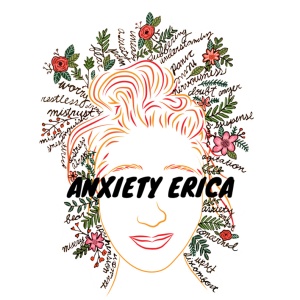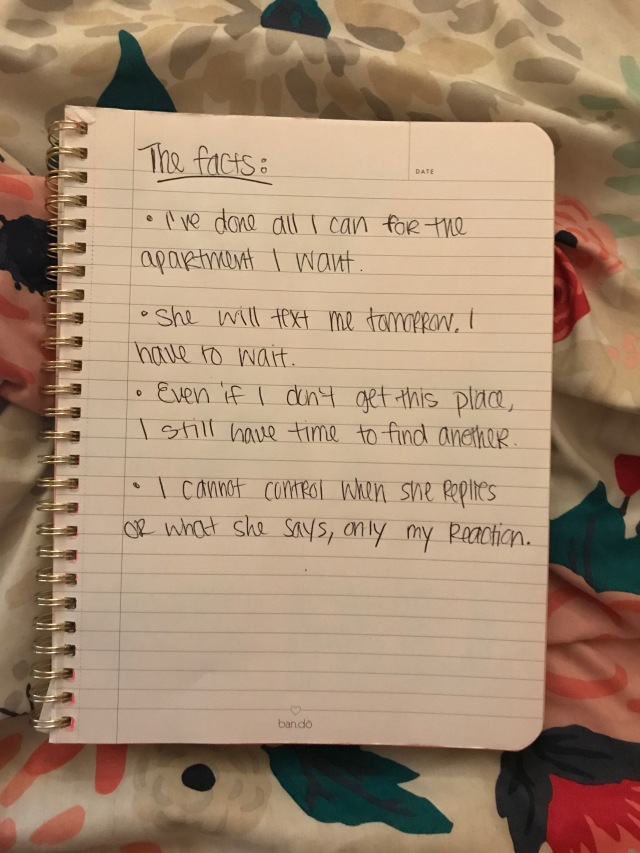Hi friends, it’s been awhile since my last post therapy thoughts. I missed it terribly. Lately, the motivation to blog comes in waves and I’m honestly just trying to ride them as they come. Not push myself to write if I don’t feel inspired because who wants content that feels forced?
Today, I went into therapy in a whirlwind. In the morning, I woke up early and gathered my thoughts into a journal – which I realized was basically full, so if anyone has any suggestions for a new one that they LOVE, let me know – so I figured I would be good to go, fully prepared for the session. Wrong-o.
Just when life lets you believe things are headed one direction, it yanks you into a completely different place. I got into an argument over a family situation, and got out of the car pissed, walking into therapy shaken up.
I sat down and basically vomited out all my feelings until I had to slow down and drink some water, it’s tough business sharing.
We changed topics and the theme of nitpicking and overly high expectations came up in conversation. Whether it’s a friendship, relationship, work, or anything really, I’ve always created unrealistic expectations. This can lead to symptoms such as disappointment, anxiety, and fear in the future of being let down.
In all seriousness, it’s been a big issue for me and my anxiety. Whenever something new enters my life, I overthink and build up these ridiculous expectations that will usually always end in disappointment. When I get let down, Anxiety Erica has me right where she wants me: afraid. Afraid of change, afraid of repeating my toxic patterns, afraid of anything unknown.
Because if I’m afraid, I won’t do it. I used to not let the scary stuff in. But now, I’ve learned that fear is just false facts and when I found that searching for the truth triumphs–my anxiety was shit out of luck.
However, it still occasionally pops up. That’s the thing about anxiety. With all the therapy and tools you can learn, your brain still thinks the negative thoughts from time to time. They don’t just vanish–it’s just I have new ways to handling them when they’re here.
I have fears, and from that comes expectations that are rigid and unrealistic. When I explained all this to my therapist, she stopped me and nonchalantly said (as she always does):
“Erica, don’t make it ‘good enough.’ It’s already there. Take it for what it is right now.”
Now, I’ve heard high expectations spoken about in many different ways, but this was a first for me. Don’t make it good enough. That really hit me. That’s exactly what I do.
I sit, fester, and obsess over little details until they are deemed “good enough.” Not even for me first, but for the other people in my life. For family, friends, coworkers. When I’m so focused on it feeling “right” and “perfectly fitting” into my life, I’m missing moments where I could be present.
And that’s the most frustrating thing of all about anxiety. It keeps you caught up in your own little lies, making you miss what could be a truly wonderful moment. One that is good enough all on its own, without anyone’s permission.
This is constantly something I work on, and this new affirmation from my therapist is what I can repeat to myself when I feel the fear and need for expectation creep up into my bones.
No need to find what is good enough, it’s already there. It just is.
Do you have overly high expectations, or a fear that something isn’t good enough? Share your thoughts in the comments!











